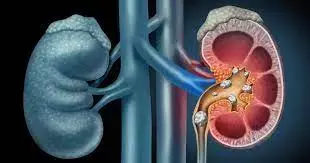- Home
- Medical news & Guidelines
- Anesthesiology
- Cardiology and CTVS
- Critical Care
- Dentistry
- Dermatology
- Diabetes and Endocrinology
- ENT
- Gastroenterology
- Medicine
- Nephrology
- Neurology
- Obstretics-Gynaecology
- Oncology
- Ophthalmology
- Orthopaedics
- Pediatrics-Neonatology
- Psychiatry
- Pulmonology
- Radiology
- Surgery
- Urology
- Laboratory Medicine
- Diet
- Nursing
- Paramedical
- Physiotherapy
- Health news
- Fact Check
- Bone Health Fact Check
- Brain Health Fact Check
- Cancer Related Fact Check
- Child Care Fact Check
- Dental and oral health fact check
- Diabetes and metabolic health fact check
- Diet and Nutrition Fact Check
- Eye and ENT Care Fact Check
- Fitness fact check
- Gut health fact check
- Heart health fact check
- Kidney health fact check
- Medical education fact check
- Men's health fact check
- Respiratory fact check
- Skin and hair care fact check
- Vaccine and Immunization fact check
- Women's health fact check
- AYUSH
- State News
- Andaman and Nicobar Islands
- Andhra Pradesh
- Arunachal Pradesh
- Assam
- Bihar
- Chandigarh
- Chattisgarh
- Dadra and Nagar Haveli
- Daman and Diu
- Delhi
- Goa
- Gujarat
- Haryana
- Himachal Pradesh
- Jammu & Kashmir
- Jharkhand
- Karnataka
- Kerala
- Ladakh
- Lakshadweep
- Madhya Pradesh
- Maharashtra
- Manipur
- Meghalaya
- Mizoram
- Nagaland
- Odisha
- Puducherry
- Punjab
- Rajasthan
- Sikkim
- Tamil Nadu
- Telangana
- Tripura
- Uttar Pradesh
- Uttrakhand
- West Bengal
- Medical Education
- Industry
Dietary potassium intake linked with blood potassium concentration in patients with CKD: study

Dietary potassium intake is linked with blood potassium concentration in patients with CKD according to a recent study published in the Journal of the American Society of Nephrology.
Observational studies suggest that adequate dietary potassium intake (90–120 mmol/day) may be renoprotective, but the effects of increasing dietary potassium and the risk of hyperkalemia are unknown.
This is a prespecified analysis of the run-in phase of a clinical trial in which 191 patients (age 68±11 years, 74% males, 86% European ancestry, eGFR 31±9 ml/min per 1.73 m2, 83% renin-angiotensin system inhibitors, 38% diabetes) were treated with 40 mmol potassium chloride (KCl) per day for 2 weeks.
Results:
- KCl supplementation significantly increased urinary potassium excretion, plasma potassium, and plasma aldosterone, but had no significant effect on urinary sodium excretion, plasma renin, BP, eGFR, or albuminuria.
- Furthermore, KCl supplementation increased plasma chloride and reduced plasma bicarbonate and urine pH, but did not change urinary ammonium excretion.
- In total, 21 participants (11%) developed hyperkalemia
- They were older and had higher baseline plasma potassium.
The researchers concluded that in patients with CKD stage G3b–4, increasing dietary potassium intake to recommended levels with potassium chloride supplementation raises plasma potassium by 0.4 mmol/L. This may result in hyperkalemia in older patients or those with higher baseline plasma potassium. Longer-term studies should address whether cardiorenal protection outweighs the risk of hyperkalemia.
In the study Higher baseline plasma potassium and older age were risk factors for developing hyperkalemia after supplementation. Potassium chloride supplementation did not lower office BP, but did cause a tendency toward hyperchloremic metabolic acidosis. Longer-term studies should determine whether the cardiorenal benefits of adequate dietary potassium intake outweigh the risk of hyperkalemia in patients with CKD.
Reference:
Martin Gritter, et al. Effects of Short-Term Potassium Chloride Supplementation in Patients with CKD. JASN September 2022, 33 (9) 1779-1789; DOI: https://doi.org/10.1681/ASN.2022020147
Dr. Shravani Dali has completed her BDS from Pravara institute of medical sciences, loni. Following which she extensively worked in the healthcare sector for 2+ years. She has been actively involved in writing blogs in field of health and wellness. Currently she is pursuing her Masters of public health-health administration from Tata institute of social sciences. She can be contacted at editorial@medicaldialogues.in.
Dr Kamal Kant Kohli-MBBS, DTCD- a chest specialist with more than 30 years of practice and a flair for writing clinical articles, Dr Kamal Kant Kohli joined Medical Dialogues as a Chief Editor of Medical News. Besides writing articles, as an editor, he proofreads and verifies all the medical content published on Medical Dialogues including those coming from journals, studies,medical conferences,guidelines etc. Email: drkohli@medicaldialogues.in. Contact no. 011-43720751


